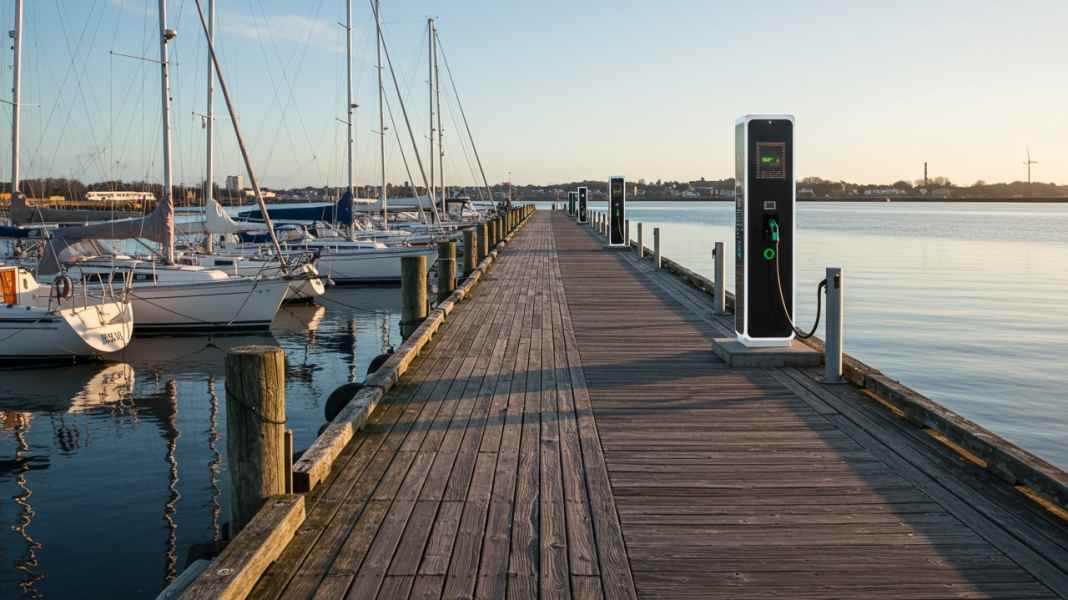E-charging stations: Coalition plans mandatory equipment in harbours from 2035
Torsten Moench
· 01.04.2025

+++ This article is an April Fool's joke +++
An ambitious plan for the electrification of leisure boating is emerging in the ongoing coalition negotiations between the CDU/CSU and SPD. According to usually well-informed sources, charging points for electric boats are to become mandatory in all harbours and marinas with more than 100 berths by 2035. This initiative could provide a decisive boost for the decarbonisation of water sports, but poses considerable challenges for port operators. It is still unclear whether the planned charging infrastructure will consist of fast charging points or conventional shore connections.
Green initiative as a basis
The current proposal is based on an initiative launched by the Green Party in 2022, which included a comprehensive list of demands for the decarbonisation of the leisure industry, with leisure boating being a key aspect. The inclusion of this idea in the coalition negotiations shows that the issue of sustainability in water sports is becoming increasingly important across all parties. The possible introduction of fast chargers poses immense problems for many harbour and marina operators. Even today, the electrical supply at many harbours is barely sufficient to meet the increased demand.
Challenges for port operators
Modern yachts are equipped with a variety of power-intensive devices, from induction cookers and espresso machines to satellite TV systems and internet routers. In addition, there are battery-powered devices such as e-bikes, e-scooters and electric outboard motors, all of which need to be charged. The fuses in the distribution boxes are already reaching their limits. Should fast-charging stations actually become mandatory, most harbours would need to make extensive investments. Experts estimate five-figure sums per system, which are unlikely to be amortised in the short term.
Opportunities for the e-boat industry
While harbour operators are concerned about the potential costs, manufacturers and dealers of electric boats see great opportunities in the initiative. The availability of fast chargers in harbours could be a decisive selling point for customers who have previously been reluctant to purchase an electric boat due to the limited range and long charging times. Even highly motorised electric boats with large battery capacities could then be charged within a few hours, which would significantly increase the attractiveness and everyday usability of these vehicles. Even today, every owner should think carefully about which drive system to choose. We have summarised the advantages and disadvantages of purely electric propulsion compared to hybrid and this compared in this article.
Outlook for decarbonisation
The planned charging infrastructure could make a decisive contribution to the decarbonisation of leisure shipping. However, it remains to be seen how the specific regulations will be designed and what transition periods are planned. The question of financing - for example through government funding programmes or a levy on mooring fees - will also have to be discussed intensively in the coming months. One thing is certain: The shift towards more environmentally friendly leisure shipping has begun, and the introduction of mandatory charging points could be an important milestone on this path.
However, some helmsmen would have to change their habits a little, because manoeuvring in harbours is somewhat different with electric propulsion. Read more...
+++ This article is an April Fool's joke +++
